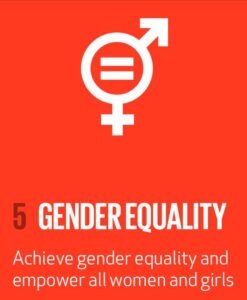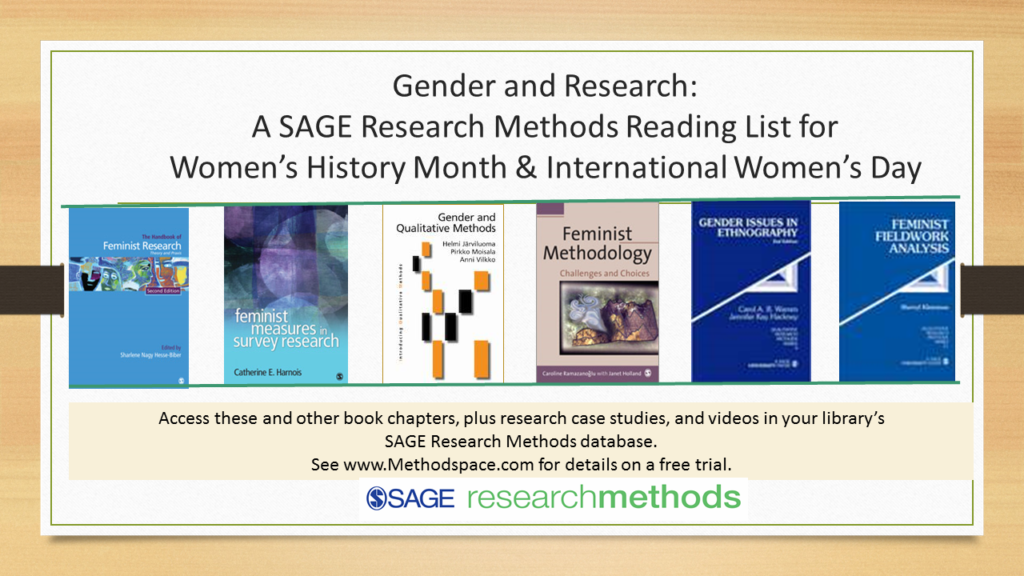More than a Month: Women's History & Progress
March is Women's History Month, and March 8 is International  Women's Day. The International Women's Day theme for this year is #PressforProgress. Progress for women is a long-range global commitment laid out in the United Nations Sustainable Development Goals. While gender issues pervade all 17 goals, Goal 5 specifically points to the need to achieve gender equality and to empower all women and girls.
Women's Day. The International Women's Day theme for this year is #PressforProgress. Progress for women is a long-range global commitment laid out in the United Nations Sustainable Development Goals. While gender issues pervade all 17 goals, Goal 5 specifically points to the need to achieve gender equality and to empower all women and girls.
What do these aspirations and goals mean for researchers? Way back when I had many aha moments when reading two books assigned in an undergraduate course: In a Different Voice by Carol Gilligan, and Women's Ways of Knowing, by Belenky, Clinchy, Goldberger, and Tarule. One of the most profound insights related to research: the realization that studies conducted by many scholars whose work is considered seminal were based on male-only research participants. Male researchers just assumed that the moral and psychological development of girls and women could be understood by studying boys and men. At the time I thought, wow! Academics really do live in ivory towers, if they think they can understand adolescent girls by studying adolescent boys !
Now, this many years later, we still have many gaps in scholarship and participation at all levels. More research is needed to understand issues and obstacles faced by women and girls, and to explore obstacles that keep the goals for equality from being met.
Learn more about gender and research during the SAGE Research Methods Open House. Until March 18, the entire SRM library is open for your exploration. So look at e-books and chapters, cases and videos that are relevant to your research interests, and download them for future reading.
I've put together a Reading List to help you get started. This curated list includes e-books, chapters, articles, case studies, and videos.

Look for SAGE Research Methods in your academic library. If you would like to access the SAGE resources mentioned in this list but lack library access, explore SAGE Research Methods with a free trial.
Also see an excellent, still relevant classic: Belenky, M., Clinchy, B., Goldberger, N., & Tarule, J. (1986). Women's ways of knowing:The development of self, voice, and mind. New York: Basic Books.
Gilligan, C. (1982). In a different voice. Cambridge, MA: Havard University Press.
